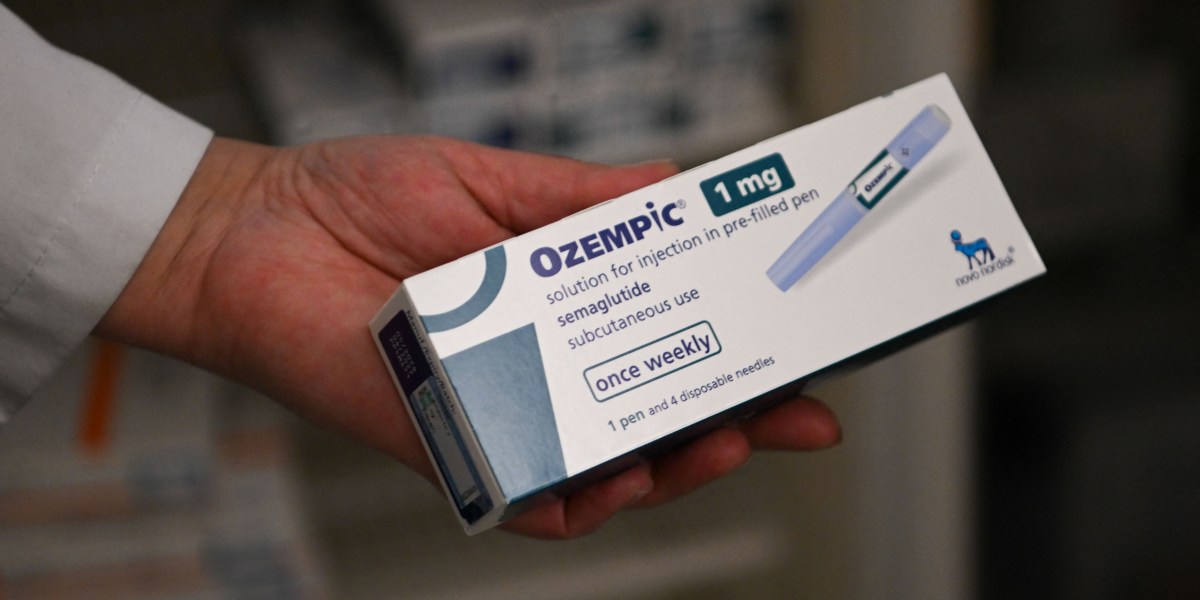Physical Address
304 North Cardinal St.
Dorchester Center, MA 02124
Physical Address
304 North Cardinal St.
Dorchester Center, MA 02124


Millions more Americans should be taking weight-loss drugs to prevent heart disease, according to the American College of Cardiology.
Exercise and a clean diet aren’t always enough for heart health, the nation’s top cardiology organization said in new recommendations released on Friday. Weight-loss drugs should be used earlier, making them part of the first line of defense for obese patients, the group said.
Novo Nordisk A/S’s Wegovy and Eli Lilly & Co.’s Zepbound should be considered when choosing primary treatments to avert heart disease, the leading cause of death in the US, according to the new guidelines. The popular drugs are more effective than lifestyle changes and have fewer risks than surgery, the nonprofit medical association said.
“We have heard about the myriad of positive influences the drugs possess and to get this sort of props from the ACC is a big win,” Mizuho Securities’ Jared Holz wrote in a note to clients.
Novo’s US-listed shares briefly spiked on Friday after the new guidelines were released, then dropped 1.1% as of 11:22 a.m. in New York. Lilly pared an earlier decline to fall 2.8%.
The ACC’s recommendation is a departure from its previous recommendation that advocated for lifestyle modifications before obesity medications. Patients shouldn’t have to “try and fail” before they are able to get the powerful medicines that have revolutionized weight loss and proven their ability to improve heart health, said Olivia Gilberta cardiologist at Atrium Health Wake Forest Baptist Medical Center who led the work on the new guidelines.
She was forthright in saying the change was intended to influence insurance companies and federal programs that decide which prescription drugs to cover. The support of cardiologists could lead more patients to embrace the medicines and signal broader insurance coverage for the drugs from Novo and Lilly, the two main companies vying for control of a market that Morgan Stanley analysts say is hurtling toward $150 billion in peak sales within a decade.
The new guidelines may have sweeping public health and policy implications that could reduce damage from heart disease, “and that’s incredibly exciting,” Gilbert said.
Even so, people should “absolutely not” cancel their gym memberships, according to Gilbert. The drugs will help with weight loss and “if anything that should increase physical activity,” she said. “They’re meant to work in tandem.”
More than 40% of adults in the US are obese, according to the Centers for Disease Control and Prevention. Uncertainty about insurance coverage is a significant barrier to treatment, the ACC said, noting there is “ongoing need to improve access to these therapies.”
Doctors can determine who is eligible for treatment to ward off heart complications based on body mass index, a calculation involving weight and height, or other risk factors, according to the new guidelines.
The link between obesity and heart health isn’t new, but patients need to lose 10% of their body weight to reduce their cardiovascular risk and 15% to slash related deaths, Gilbert said. Drug therapy may be the best and most accessible way to get there, she said.
Many insurers don’t cover the medicines, which cost around $1,000 for a month’s supply without insurance but are also available at lower prices for consumers who buy them directly with cash. The new ACC guidance could influence negotiations with private insurance companies and Medicare and Medicaid, the US government insurance programs for the elderly and the poor, according to Gilbert. While most Medicare and Medicaid plans pay for weight loss drugs for diabetics, they aren’t currently covered for obesity.
In March last year, the Food and Drug Administration approved Novo’s Wegovy for reducing the risk of cardiovascular death, heart attacks and strokes in patients who are overweight and have heart disease, making it the first of the weight-loss drugs approved for preventing potentially fatal heart issues. While the agency hasn’t yet cleared Lilly’s Zepbound for treating cardiovascular disease, it did cut deaths from heart failure in a late-stage study last year.
Lilly welcomed the change, saying it reinforces the importance of treating obesity early and effectively. Novo applauded the ACC’s move as reflecting “today’s treatment landscape.”